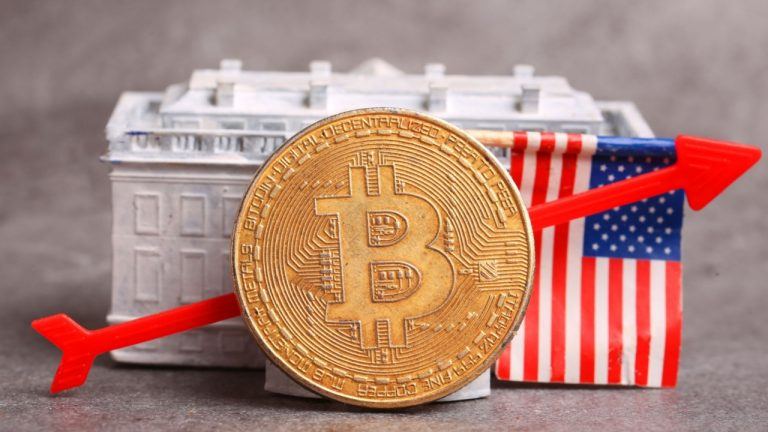Key Takeaways:
- Montana’s House Committee on Labor and Business voted to approve a measure that would allow the state to retain Bitcoin as a reserve asset.
- This move positions Montana as a potential trailblazer, influencing other states to consider similar crypto-friendly legislation.
- Implementing and operating Bitcoin reserves is associated with specific challenges and threats, namely volatility, cybersecurity threats, and regulatory requirements.
Montana is making waves within the crypto sphere. The state is among the first to look at a game-changing measure: investing Bitcoin into state assets. It might change state finances, shape legislation, and possibly end the fiat currency reign across the country.
The Genesis of the Montana House Bill No. 429
On February 19th, the Montana House Business and Labor Committee voted 12 to 8 to approve the passage of House Bill No. 429. It is a strictly bipartisan divide, with the Republican Party voting to approve the legislation while the Democrats voted to reject it. The legislation opens the door to the state treasurer to invest in digital assets, stablecoins, and most significantly, in precious metals. However, with a significant proviso: the digital assets must have had a year-round average market cap of at least $750 billion. To date, Bitcoin is the only digital asset that meets this criterion.

HB 429. Source: Bitcoin Laws
This immediately telegraphs the legislation’s overall purpose: to allow the state of Montana to invest in Bitcoin. Something that appears to be a purely financial decision carries deeper implications. Putting Bitcoin into its reserves might signal that the state of Montana is asserting a belief that Bitcoin is a stable asset with a robust value that will endure the long term, both as a financial investment opportunity and a hedge against traditional economic unknowns.
The bill, as originally written, included a requirement for funds to be held by a qualified custodian or through an exchange-traded fund. This was later removed in an amendment, raising questions about how the state would manage and secure its Bitcoin holdings. If passed, the bill would take effect on July 1, empowering the state treasurer to allocate up to $50 million to a special account for investment in precious metals, digital assets, and stablecoins by July 15.
Montana Enters the Fray: An Initiative Led by the State
Montana is the newest state to present a Bitcoin reserve-related bill to the House. It puts the state among a small group of growing trailblazers exploring the potential of Bitcoin to serve as a reserve asset.
The other states at the vanguard of this movement include Arizona, Utah, and Oklahoma. Among them, Utah is furthest ahead, being the only state to have successfully passed a Bitcoin reserve bill through the House. Dennis Porter of the Satoshi Action Fund is so certain that Utah is well-placed to be the first US state to include Bitcoin among its reserve assets that he describes the state’s progress as driven by “political momentum.” It will be interesting to see if Montana advances before Utah.
A Ripple Effect Across the Nation
Montana’s decision could have a ripple effect across the country. With other states also considering the legislation, the actions of Montana could embolden others to pursue their own Bitcoin reserve endeavors.
Several states, including Illinois, Kentucky, Maryland, New Hampshire, New Mexico, North Dakota, Ohio, Pennsylvania, South Dakota, and Texas, have filed their state Bitcoin reserve legislation. It is a reflection of growing popularity of the concept following a range of reasons that include the potential of financial diversification, the desire to attract crypto-related entities to their jurisdictions, and the belief that digital assets have a future ahead of them.
More News: Kentucky and Missouri Lead the Charge: The State-Level Bitcoin Reserve Revolution Heats Up
The trend of the states turning “crypto-friendly” could lead to a race of regulation, with the states vying to have the best environment to accommodate innovation and investments in cryptocurrencies. The financial gains of being the first to do so could overwhelm the perceived risks of embracing Bitcoin and other cryptocurrencies, urging the states to proceed with them.
Managing Bitcoin Reserves: Confronting the Risks and Challenges
While the prospect of investing Bitcoin into state reserves is alluring, their management and introduction are fraught with challenges and threats.
- Volatility: Bitcoin is extremely price-volatile, something that is a cause of concern to prudent government institutions. A sudden crash of the market can significantly reduce the worth of the state’s Bitcoin assets, bringing about financial loss and public criticism. To put this into perspective, the value of Bitcoin declined by over 70% with the 2022 crypto crash, causing significant losses to investors.
- Cybersecurity: Government-held Bitcoin wallets would also provide a very attractive target to hackers. States will have to invest heavily to have robust cybersecurity to prevent theft and loss of assets. The 2016 Bitfinex hack that resulted in the theft of over 120,000 Bitcoins is a sober reminder of the perils involved.
- Custody: Ensuring the safe holding of Bitcoin assets is paramount. The amendment of the bill eliminating the need for qualified custodians is a worry regarding security. In the absence of proper skills and infrastructure, the state can risk theft or loss of the private keys necessary to access and manage Bitcoin assets.
- Regulatory Compliance: States must navigate the complex and ever-changing regulatory landscape of cryptocurrencies. Compliance with the Anti-Money Laundering (AML) and Counter-Terrorism Financing (CTF) laws is needed to avoid legal and reputational risks.
Challenging the Fiat Paradigm? The Broader Implications
The emergence of state Bitcoin reserve bills also raises the question of whether this can potentially undermine the US fiat currency supremacy.
The concept of a Strategic Bitcoin Reserve is built upon the belief that holding Bitcoin can serve as a hedge against economic upheavals and mainstream digital assets into the US financial system. With states investing in Bitcoin, trust in the stability of the dollar could be eroded, making investors question their portfolios.
On the other hand, the inclusion of Bitcoin within the financial landscape could give the dollar a competitive advantage by making it compatible with digital currencies while maintaining the US at the forefront of international finance. The long-run implications of Bitcoin holdings by states are unknown at this time, although this trend could redefine the way government entities view and manage financial assets.
Digital Asset Management: Redefining Investment Strategies
State-level Bitcoin reserve efforts are also changing the way investments are made and regulated. With public funds being directed into Bitcoin, states are initiating a trend that could potentially lead other investment entities to consider digital assets as viable portfolio inclusions.
Establishing these reserves will require well-defined legislation mandating the proper classification of Bitcoin and ensuring compliance with AML and CFT regulations. Transparency will also be key, as Bitcoin reserve accounts must be reconciled with Generally Accepted Accounting Principles (GAAP) or International Financial Reporting Standards (IFRS).
The post Montana Advances Bitcoin Reserve Bill to the House, Following Three Other States appeared first on CryptoNinjas.

You can get bonuses upto $100 FREE BONUS when you:
💰 Install these recommended apps:
💲 SocialGood - 100% Crypto Back on Everyday Shopping
💲 xPortal - The DeFi For The Next Billion
💲 CryptoTab Browser - Lightweight, fast, and ready to mine!
💰 Register on these recommended exchanges:
🟡 Binance🟡 Bitfinex🟡 Bitmart🟡 Bittrex🟡 Bitget
🟡 CoinEx🟡 Crypto.com🟡 Gate.io🟡 Huobi🟡 Kucoin.















Comments